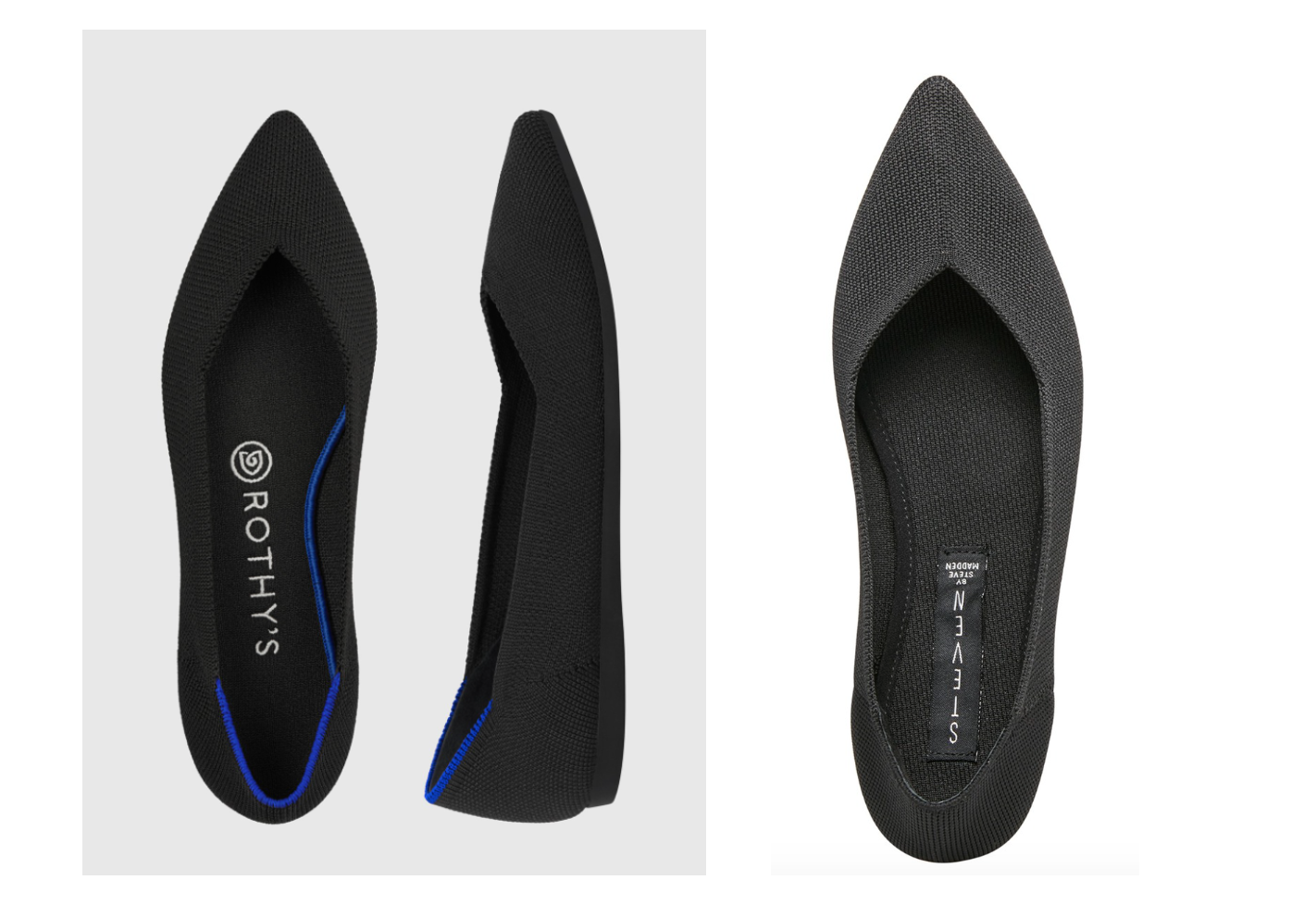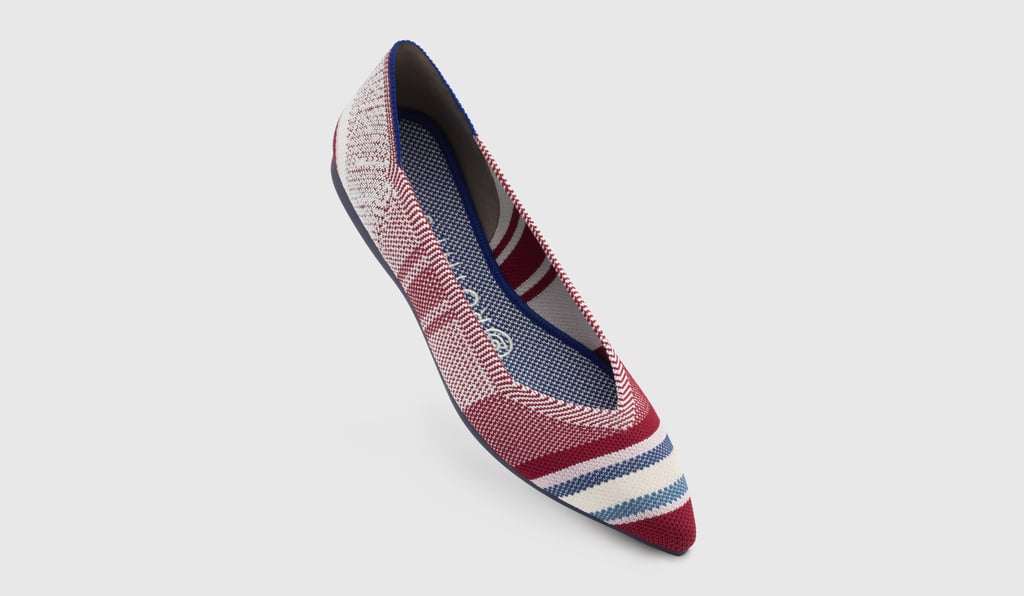Rothy’s – the footwear startup that sold more than 1 million of its signature ballet flats last year – has “placed a cloud over Steve Madden’s rights to continue producing and selling its [own] ballet flats,” and the New York-based giant is not going down without a fight. On the heels of settling a suit centering on the design of Cult Gaia’s popular Ark bag, Steve Madden is taking on Rothy’s after receiving a cease and desist letter from the brand in connection with lookalike footwear that it is offering for sale.
According to the complaint that it filed in a Delaware federal court on Monday, Steve Madden claims that on August 2, legal counsel for Rothy’s sent it a cease and desist letter, threatening legal action over Madden’s alleged “acts of patent infringement, federal trade dress infringement, dilution and misappropriation,” just as Rothy’s has done to “multiple other companies” in the past.
In at least two of those prior instances, Madden claims that Rothy’s proceeded by filing suit against other companies “for virtually the same alleged patent and trademark infringement as Rothy’s has alleged against Steve Madden,” thereby, giving rise to “a reasonable apprehension of litigation” in the situation at hand.
With that in mind, Madden has asked the U.S. District Court for the District of Delaware to clear up any uncertainty and declare that it is not infringing Rothy’s rights by way of its Rosy Flat, which Rothy’s calls “a slavish copy” of its “The Point” ballet flat, and asserts that “an ordinary observer would be deceived into believing that [Madden’s Rosy flats] are the same as Rothy’s The Point design.”
 Rote’s The Point flat (left) & Steve Madden’s Rosy flat (right)
Rote’s The Point flat (left) & Steve Madden’s Rosy flat (right)
More than that, Steve Madden wants the court to determine that the trade dress that Rothy’s referenced in its cease and desist letter is invalid because “all elements of the trade dress asserted by Rothy’s are functional,” which is a bar to trademark protection, and that the trade dress “is not distinctive and has not acquired secondary meaning.” In fact, Madden argues that Rothy’s asserted trade dress – a subset of trademark law that provides protection for the appearance of a product – is strikingly similar to numerous other ballet flats that have long been sold in the marketplace,” meaning that it will be difficult, if not impossible, for consumers to link the design to a single source as required for trademark protection.
Since it was launched in 2016 by gallerist Roth Martin and investment banker Stephen Hawthornthwaite, San Francisco-based Rothy’s has amassed what CNBC calls “an almost cult-like following” in connection with its shoes, which range in price from $125 to $165 and are made entirely from used materials like recycled water bottles. Produced using a “proprietary 3D knitting process,” Rothy’s and its ballet flats, loafers, and casual sneakers have caught the eyes of venture funds and Goldman Sachs, the latter of which poured $35 million into the burgeoning young brand last year, bringing its total funding to $42 million over the past few years.
In 2018, alone, Rothy’s sold more than 1 million pairs of shoes, and generated annual revenue of more than $140 million, but not without its fair share of copycats. “Somewhat ironically, one of the biggest threats to Rothy’s ongoing rise — other than fickle shoppers — is companies that are beginning to copy Rothy’s [relatively simple] designs,” TechCrunch noted last year.
Rothy’s President and COO Kerry Cooper told TFL in a statement on Tuesday, “We can’t comment on pending legal matters, but we are and will continue to vigorously defend Rothy’s intellectual property. Rothy’s currently holds 42 patents, with 39 patents still pending.”
*The case is Steven Madden LTD. v. Rothy’s, Inc., 1:19-CV-01509 (D. Del.).











